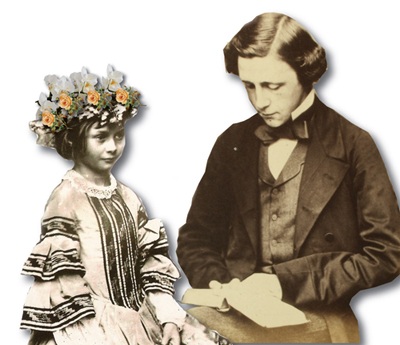
En noviembre 26, 1864, Lewis Carroll dio mi pariente, Alice Pleasance Liddell, un libro que había escrito para ella. Llamó el libro Las aventuras de Alicia Underground después de títulos considerando tales como Alice Golden House, Alice Entre los Elfos, Alice Entre los Goblins, y Haceres de Alicia en el País de las Maravillas. Carroll había pasado más de dos años escribiendo e ilustrando el libro de Alice. Consistía en noventa y dos páginas cubiertas con su escritura-impresión similares, así como treinta y siete de sus propios dibujos a pluma. El libro da a Alice Liddell iba a cambiar su vida para siempre.
It all began (as Carroll reminded his followers on a number of occasions) because of a 10-year-old girl who had encouraged Carroll’s storytelling for years, and in particular a story he told about Alice in Wonderland during a summer day’s picnic on July 4, 1862. Alice was continuously insistent that Carroll write the story down for her, which he eventually did and ultimately presented to her as an early Christmas gift. The book would also change Carroll’s life forever, pero nunca podría haber ocurrido si una niña no se había inspirado autor de libros para los niños inéditos para escribir el libro de todos los tiempos los más grandes de los niños.
Hay más 20,000 libros, películas, óperas, juegos y videojuegos basados en Lewis Carroll Las aventuras de Alicia en el País de las Maravillas y A través del espejo y lo que Alicia encontró allí. Se estima que más del 8 Mil millones de personas han leído o visto presentaciones de la “Alice” libros. Lewis Carroll es sólo por detrás de la Biblia y Shakespeare en el número de citas de la “Alice” los libros que aparecen en el discurso publicado. Además de las nuevas adaptaciones de Las aventuras de Alicia en el País de las Maravillas, Vida de Carroll y de Liddell continúan inspirando numerosos libros nuevos, obras de arte, y proyectos de cine. And all because of “un libro dado.”
If the book given to Alice in 1864 was given today, just imagine the variety of different ways a creative chap like Lewis Carroll might have presented it to his Alice. Quantum leaps in technology have completely changed the way we write, illustrate, publish, market, promote and consume books. I find myself (like Alice) constantly curious and excited about discovering all the new products in the digital books wonderland, while at the same time overwhelmed by all the new found freedoms the technology revolution promises to offer me. Is the device simple stupid enough for me to connect with quickly in my already complicated life? Is it time to buy this tablet or this e-reader? Will I look out of date to my bridge pals when the new updated version is released in 6 months time? I also wonder whether any of us will recognize the content of yesterday’s “libro” once the revolution settles down. Will writing for Google become such an integral part of the book marketing culture that creative processes are dramatically changed?
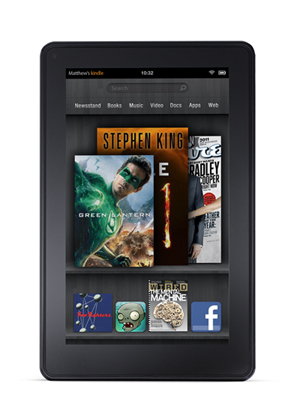
Between you and me, I yearn for some form of consolidation in all the craziness that would enable me to feel I can comment intelligently on what appears to be the longer term trends in the publishing model. One thing I know for sure: an entertainment business career which kept me moving through the theatrical, televisión, vídeo, DVD, pay on demand and pay television formats taught me that we don’t stop watching great movies. As a passionate movie lover, I would argue that the changing technology enabled me to watch more great and even not so great movies than ever before, since I was able to do it more often thanks to a variety of formats that accommodated my ever-changing hectic lifestyle. Adicionalmente, those great movies that made that unforgettable connection and changed my life forever, I not only watched again and again, but I insisted on owning them in every possible format I could fit onto the living room shelf.
And so I don’t believe that passionate readers, like passionate movie lovers, will ever disappear. The way readers read will of course continue to evolve and change, but certain things about the cultural experience will not. Por ejemplo, everything will still begin with the written word, and if that written word is to survive the test of time and change lives forever (like the book given to my relative in 1864), it will happen because of rare talent and creativity and innovative thinking in an age that is redefining how we shall read.
Photos courtesy of Amazon.com, Inc. y Henmead Empresas, Inc.
¿Cómo vamos a Leer? Página de la comunidad y Alice Comunidad Página
For How Will We Read articles: haga clic aquí and for more Alice articles: haga clic aquí
C.M. Rubin has more than two decades of professional experience in development, márketing, and art direction for a diverse range of media businesses. She is the author of the widely read on-line series, La Búsqueda Global para la Educación, y es también el autor de tres libros más vendidos, Incluido The Real Alice in Wonderland.
Siga C. M. Rubin en Twitter: www.twitter.com/@cmrubinworld

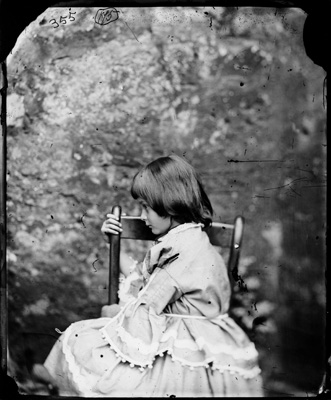
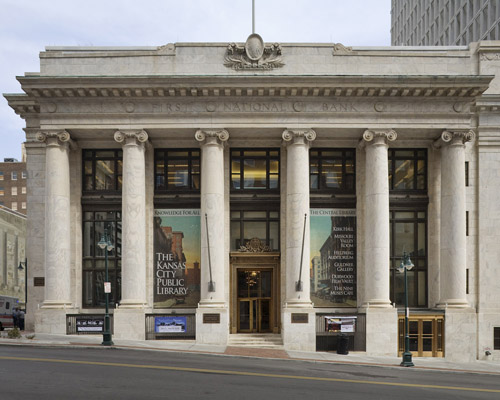
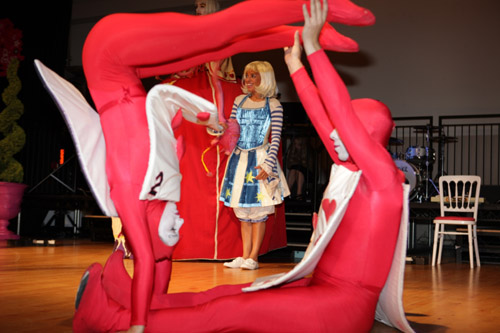
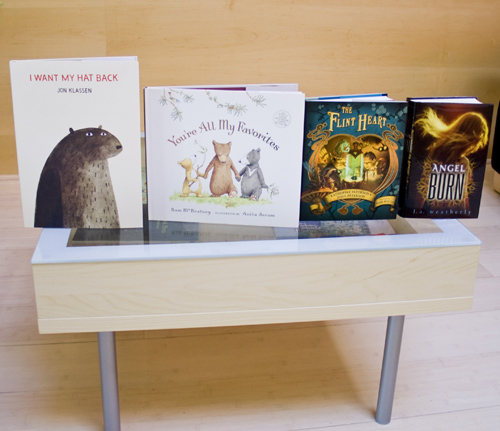
Comentarios recientes